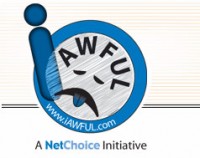Please join us for this Progress & Freedom Foundation luncheon briefing on Friday, April 16, 12-2 pm in the Capitol Visitor Center, Room SVC 208/209 at E Capitol St NE & 1st St NE. I’ll be moderating a discussion of the growing powers of the Federal Trade Commission (FTC) and what it might mean for consumers, advertisers, media creators, and the Internet.
As I’ve discussed here, here and here, financial reform legislation passed by the House (HR 4173) and now under debate in the Senate would give the FTC sweeping new powers to regulate not just Wall Street, but also unfair or deceptive trade practices across the economy. This could reshape regulation in a wide range of areas, such as privacy, cybersecurity, child safety, COPPA, and child nutrition, affecting media online as well as offline. Unfortunately, as Adam and I have noted, there seems to be a disconnect at the FTC between concerns over the future of struggling media creators and efforts to step up regulation on a number of fronts, especially privacy. The FTC has also asserted expanded authority to regulate “unfair” competition in its lawsuit against Intel, based solely on the FTC’s Section 5 unfairness authority rather than traditional antitrust law. PFF has assembled a group of expert panelists—veteran FTC practitioners, scholars and insiders—to discuss these issues and more. Here’s our panel:
- Jack Calfee, Resident Scholar, American Enterprise Institute for Public Policy Research (AEI) & author of Fear of Persuasion: A New Perspective on Advertising and Regulation (1998)
- Maureen Ohlhausen, Partner, Wilkinson Barker Knauer, Consumer Protection Law and Competition Law practices, & 11-year FTC veteran
- Jim Davidson, Chair of the Public Policy group, Polsinelli Shughart PC
- Stu Ingis, Partner, Venable LLP Continue reading →




 The Technology Liberation Front is the tech policy blog dedicated to keeping politicians' hands off the 'net and everything else related to technology.
The Technology Liberation Front is the tech policy blog dedicated to keeping politicians' hands off the 'net and everything else related to technology.